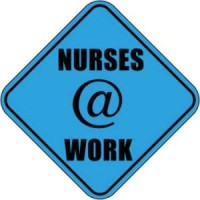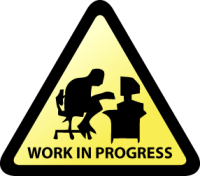
by cjxpadmin | May 1, 2014 | May 2014 Magazine, This Issue's FEATURE
By Yolanda L Salazar
This article is based on an article by U.S. News of their 100 best jobs selected for 2014. Here I will be providing you with the top 10 Jobs of 2014. If you click on each of the job titles in this article, the link will take you to a full review of the job, to include salary, training and reviews and advice.
 All jobs are definitely not created equal. In fact, some are simply better than the rest. U.S. News 100 Best Jobs of 2014 offers a mosaic of employment opportunity, good salary, manageable work-life balance and job security. Some careers offer just the right mix of these components.
All jobs are definitely not created equal. In fact, some are simply better than the rest. U.S. News 100 Best Jobs of 2014 offers a mosaic of employment opportunity, good salary, manageable work-life balance and job security. Some careers offer just the right mix of these components.
For example, nearly 40 percent of our picks are health care jobs; however, the list does include strong showings from occupations in the social services and business sectors. And for the first time, strangely enough, the No. 1 pick is a technology job.
Software Developer #1
 Where would we be without our software developers? Lost, that’s where we would be. They develop software that helps us wake up in the morning, track our routine exercise, allow us to play our games on our devices or computers, find us a restaurant or keep our calendar updated. They do it all.
Where would we be without our software developers? Lost, that’s where we would be. They develop software that helps us wake up in the morning, track our routine exercise, allow us to play our games on our devices or computers, find us a restaurant or keep our calendar updated. They do it all.
One type of developer is the individual who develops applications and designs computer software, databases and games. On the other hand, we have the developers who focus on building computer operating systems.
Growth for both types of IT professionals should balloon: The Bureau of Labor Statistics predicts there will be nearly 140,000 brand new positions created before 2022. That is a projection of 22.8% employment growth for software developers between 2012 and 2022, much faster than average for all occupations.
The profession’s superb job prospects, low unemployment rate and excellent median salary helped this job to grab the coveted No. 1 spot in the ranking of the Top 10 Jobs of 2014.
Computer Systems Analyst #2
 A Computer Systems Analyst has a very difficult job. The requirements are numerous, but the most important thing that an analyst of this type needs is the knowledge and understanding of computer hardware, software and networks that make everything work together. These individuals are the ones who make the recommendations to companies and organizations for them to purchase the best operating systems available to meet their particular needs.
A Computer Systems Analyst has a very difficult job. The requirements are numerous, but the most important thing that an analyst of this type needs is the knowledge and understanding of computer hardware, software and networks that make everything work together. These individuals are the ones who make the recommendations to companies and organizations for them to purchase the best operating systems available to meet their particular needs.
The Bureau of Labor Statistics predicts 24.5 percent employment growth for this job by 2022. The demand for computer systems analysts should grow pretty steadily over the next ten years because businesses are relying more and more on information technology. This profession’s strong growth prospects helped boost computer systems analyst to the No. 2 spot in the ranking of the Top 10 Jobs of 2014.
Dentist #3
 Who likes to go to the dentist? No one, I suppose, but it is very necessary to see your dentist at least twice a year for regular, routine checkups. If there is anything bad stirring in there, you definitely want to know before it gets any worse. I guess that is the way it is with everything, but the dentist is crucial.
Who likes to go to the dentist? No one, I suppose, but it is very necessary to see your dentist at least twice a year for regular, routine checkups. If there is anything bad stirring in there, you definitely want to know before it gets any worse. I guess that is the way it is with everything, but the dentist is crucial.
The many jobs of the dentist can cover teeth cleaning, extracting teeth, fitting dentures and filling cavities, to name a few. There is also teeth straightening as well as teeth whitening for those of us who want to have a beautiful smile with brilliant white teeth.
The Bureau of Labor Statistics predicts employment growth of nearly 16% between 2012 and 2022, with more than 23,000 new openings. A comfortable salary, low unemployment rate and agreeable work-life balance boost dentist to the No. 3 position on the list of the Top 10 Jobs of 2014.
Nurse Practitioner #4
 A nurse practitioner is a highly sought-after employee. If you are in training or are thinking about going into training as a nurse practitioner, you may as well have won the lottery. Well, it seems that way anyway. Truthfully, the health care field has bumped up the demand for medical professionals across the county.
A nurse practitioner is a highly sought-after employee. If you are in training or are thinking about going into training as a nurse practitioner, you may as well have won the lottery. Well, it seems that way anyway. Truthfully, the health care field has bumped up the demand for medical professionals across the county.
Nursing is an excellent field because job opportunities are rampant at the moment. The unemployment rate for this profession is extremely low. Nurse practitioners can take patient histories, perform physical exams, order labs, analyze lab results, prescribe medicines, authorize treatments and even counsel patients and their families with regard to continued care. Candidates for nurse practitioners could also select a specific area of training such as cardiology, dermatology, oncology, orthopedics and much, much more. Along with a specific area of training, nurse practitioners could also specialize in a specific population such as families, adults, pediatrics or geriatrics.
The Bureau of Labor Statistics predicts 37,100 new positions for these professionals between 2012 and 2022. It’s a nurse practitioner’s array of capabilities, coupled with the fact they can work independently of physicians when treating patients, that makes the Number 4 position on the list of the Top 10 Jobs of 2014.
Pharmacist #5
 The job of Pharmacist requires a mix of medical knowledge and people skills which puts this job in high demand. The earnings potential remains relatively high in the health care field and wages have climbed slightly from a year ago.
The job of Pharmacist requires a mix of medical knowledge and people skills which puts this job in high demand. The earnings potential remains relatively high in the health care field and wages have climbed slightly from a year ago.
Pharmacists mix technical, organizational and people skills in a customer service environment. This profession, according to the Bureau of Labor Statistics, is expected to grow 14.5 percent by 2022, with the field adding 41,400 new jobs.
Each day, more than 281,560 pharmacists dispense medicine and advice to patients, hospitals, retail chains, as well as clinical and corporate settings. This is why the profession of Pharmacist has come in as Number 5 in the list of the Top 10 Jobs of 2014.
Registered Nurse #6
 Nursing is an indispensable profession in health care; one where workers are almost always needed. Normally, there are four main areas of specialization for Registered Nurses:
Nursing is an indispensable profession in health care; one where workers are almost always needed. Normally, there are four main areas of specialization for Registered Nurses:
- Offering care for a specific health condition, such as diabetes or cancer
- A specific part of the body as in dermatology or cardiovascular
- A group of people such as premature babies or the elderly; and
- A particular type of environment such as emergency room or school.
Also as part of this field, registered nurses could work in anything from medical offices or administering medicine to performing procedures and monitoring a patient’s progress.
The Bureau of Labor Statistics anticipates 19.4 percent employment growth and 526,800 brand new jobs in this field between 2012 and 2022. This amazing growth coupled with a 2.6 percent unemployment rate plus good job prospects have helped this industry become the Number 6 spot on the Top 10 Jobs of 2014.
Physical Therapist #7
 There is a high demand for professionals who plan and execute rehabilitative programs designed to improve patient mobility and lessen pain. Physical therapists could work in hospital settings, clinics or in private environments. The thing that is driving this demand for physical therapists is the fact that older people who have had heart attacks, strokes and other injuries require rehabilitation.
There is a high demand for professionals who plan and execute rehabilitative programs designed to improve patient mobility and lessen pain. Physical therapists could work in hospital settings, clinics or in private environments. The thing that is driving this demand for physical therapists is the fact that older people who have had heart attacks, strokes and other injuries require rehabilitation.
A physical therapist’s job description might also include helping a paralytic regain mobility or a cancer survivor renew his or her strength. Physical therapists are also being called upon to help manage chronic conditions, to include diabetes and obesity.
According to the Bureau of Labor Statistics, this profession can be expected to grow 36 percent by 2022, with the field adding 72,500 more jobs. This is why this profession has secured the Number 7 slot in our list of the Top 10 Jobs of 2014.
Physician #8
 Physicians are truly amazing; some miraculous! This is a title that can add much respect and acknowledgment to any name. This requires many years of education and training. There are two types of doctors: Medical Doctor (M.D) and Doctor of Osteopathic Medicine (O.D.). Both diagnose and treat patients for a range of medical issues, although a D.O. might also specialize in preventative medicine and holistic patient care.
Physicians are truly amazing; some miraculous! This is a title that can add much respect and acknowledgment to any name. This requires many years of education and training. There are two types of doctors: Medical Doctor (M.D) and Doctor of Osteopathic Medicine (O.D.). Both diagnose and treat patients for a range of medical issues, although a D.O. might also specialize in preventative medicine and holistic patient care.
Of course, physicians, just like nurses, can practice in many and various specialties and they all carry various titles such as pediatricians, gynecologists, oncologists, ophthalmologists, podiatrists, psychiatrists and the list can go on and on. This can cover any visible or non-visible parts of your body, to include dealing with your feelings and emotions.
Due to the ever increasing need for medical attention and the fact that we are living longer these days, physicians will always be in very high demand. This means stellar employment prospects in this field.
Physicians are at the top of the health care food chain – it’s their responsibility to diagnose and treat patients, and instruct on proper diet, hygiene and disease prevention. Like other jobs in this industry, physicians will see abundant job growth. The Bureau of Labor Statistics forecasts 123,300 new job openings for physicians from 2012 to 2022, with a jump of 18 percent. That makes physicians Number 8 on our list of Top 10 Jobs of 2014.
Web Developer #9
 Web developers are awesome people, at least in my book! I have the utmost respect for someone who is able to create, design and implement a web page. It may seem easy for some people, but I give my full support to those individuals with the smarts and the know-how in working with web pages.
Web developers are awesome people, at least in my book! I have the utmost respect for someone who is able to create, design and implement a web page. It may seem easy for some people, but I give my full support to those individuals with the smarts and the know-how in working with web pages.
Web developers are responsible for everything that is perfect when you click a name on your browser and everything neatly falls into place. You can see a color scheme, main image, sleek fonts and clean layouts. The responsibility of designing, coding and modifying websites, from layout to function, falls on the web developer.
They strive to create the best looking websites for their clients, taking into account what products and services they offer, all in an easy to read and user-friendly manner.
The Bureau of Labor Statistics considers this one of the fastest-growing jobs this decade and predicts employment should swell at a rate of about 20 percent by 2022. 28,500 new jobs are expected to be filled in an industry that already has approximately 141,400 positions already. Because this is a fast growing and highly needed position, the job of web developer makes its mark as #9 on the Top 10 Jobs of 2014.
Dental Hygienist #10
 A dental hygienist primarily works on preventing dental problems. Their job is to educate patients on the proper ways to brush your teeth, ensure that you floss and offer guidance and advice on the products needed to do this. Everything involved with oral hygiene is the responsibility of a dental hygienist. Something else of note: They make yearly salaries of about $70,700, although most work part time.
A dental hygienist primarily works on preventing dental problems. Their job is to educate patients on the proper ways to brush your teeth, ensure that you floss and offer guidance and advice on the products needed to do this. Everything involved with oral hygiene is the responsibility of a dental hygienist. Something else of note: They make yearly salaries of about $70,700, although most work part time.
The Bureau of Labor Statistics expects a 33.3 percent employment growth for this field from 2012 to 2022. That’s why this job has made the list as #10 on the Top 10 Jobs of 2014.
For a complete list of U.S. News Best Jobs of 2014, check out this link.
http://money.usnews.com/careers/best-jobs/rankings/the-100-best-jobs
* All salary information from the U.S. Department of Labor Occupational Employment and Wages data, May 2012.
Excerpts from Money Careers of U.S. News

by cjxpadmin | May 1, 2014 | May 2014 Magazine, This Issue's FEATURE
By Yolanda L Salazar
That is the question on many grad students’ minds! The reasons to go to graduate school are many and varied. Some students want to ensure that they will have higher earning power and others want to enhance their education — two very good reasons.
 While having a graduate degree does not always instill a higher earning power, it is something that gives you a higher potential for advanced positions, thus helping the bottom line of making more money. For individuals with a Bachelor’s Degree who have worked and are thinking about going back to school, graduate school is definitely good for advancing your career or perhaps allowing you to make a career change.
While having a graduate degree does not always instill a higher earning power, it is something that gives you a higher potential for advanced positions, thus helping the bottom line of making more money. For individuals with a Bachelor’s Degree who have worked and are thinking about going back to school, graduate school is definitely good for advancing your career or perhaps allowing you to make a career change.
It takes a very responsible, mature and committed person to tackle graduate school. It can be very expensive as well as stressful which could cause emotional, physical and financial strains on your family and/or relationships. As I said before, there is no guarantee that you will receive a higher salary; however, it could very well be a worthwhile investment in your future.
The opportunities that can open for you are endless, from working on specialized programs or projects to getting recognition. It can also give you a deep feeling of self-satisfaction and accomplishment.
Whether you decide to go to graduate school or not, I would like to offer you some of the top 10 colleges around the country that are great for 5 very popular fields in today’s workplace. Check these out!
Healthcare Administration
 A career in Healthcare Administration would certainly merit earning a Master’s Degree. A quote from Tim Dugger, a longtime career coach at Career Café, a provider of one-on-one career coaching programs, says, “If you have a clinical background, this is definitely a degree that is going to enhance your career.
A career in Healthcare Administration would certainly merit earning a Master’s Degree. A quote from Tim Dugger, a longtime career coach at Career Café, a provider of one-on-one career coaching programs, says, “If you have a clinical background, this is definitely a degree that is going to enhance your career.
The general business education topics contained in these programs, coupled with the increased knowledge of hospital and practice operations make this one a clear winner, both personally and financially.”
Potential Career Path: Medical or Health Services Manager
Median Annual Salary*: $88,580
Top 10 Percent of Earners: $150,560
Bottom 10 Percent of Earners: $53,940
The Department of Labor also says that if you already work in the medical field, a Master’s Degree in Health Services Administration or a related field could be necessary to move into more advanced positions. For example, if you’re a registered nurse, this degree could help prepare you to pursue a position as a Nursing Service Administrator, according to the Department.
Top 10 Online Master’s Degree Program in Healthcare Administration
- Colorado State University
- Penn State University
- Ohio University
- University of Cincinnati
- Louisiana State University-Shreveport
- University of Memphis
- Saint Joseph’s University
- University of Maryland
- Bellevue University
- George Washington University
Psychology and Counseling
 If you already have a Bachelor’s Degree in Psychology, it would probably be wise to consider going after a Master’s Degree. It should definitely be a great investment.
If you already have a Bachelor’s Degree in Psychology, it would probably be wise to consider going after a Master’s Degree. It should definitely be a great investment.
Mr. Dugger says, “In areas such as mental health, marriage and family counseling, industrial and organizational psychology, therapy, and counseling, a Master’s Degree is the entry-level ticket to admission in this high-growth field.”
Potential Career Path: Marriage and Family Therapist
Median Annual Salary*: $46,670
Top 10 Percent of Earners: $75,120
Bottom 10 Percent of Earners: $25,540
To have a career in marriage and family counseling, a Master’s Degree is a requirement. Marriage and family therapy programs typically teach students how different types of relationships function, and how they affect mental and emotional disorders. In addition to this degree, you will need a license which requires an additional two years of supervised clinical practice.
Top 10 Master’s Degree Programs in Psychology and Counseling
- Columbia University
- University of Wisconsin
- Pepperdine University
- Princeton University
- University of Pennsylvania
- Harvard University
- Stanford University
- Carnegie Mellon University
- John’s Hopkins University
- University of California
Business Administration
 If you have a business background and would like to move up the career ladder, a Master’s Degree in Business Administration is your ticket. An MBA can be different and Tim Dugger explains why: “It all depends on your area of expertise. In general, undergraduate technical degrees (in areas like science, tech, engineering, or math) married with some kind of graduate business education can create a well-rounded and more promotable individual. For these people, an MBA is a powerful career enhancer.”
If you have a business background and would like to move up the career ladder, a Master’s Degree in Business Administration is your ticket. An MBA can be different and Tim Dugger explains why: “It all depends on your area of expertise. In general, undergraduate technical degrees (in areas like science, tech, engineering, or math) married with some kind of graduate business education can create a well-rounded and more promotable individual. For these people, an MBA is a powerful career enhancer.”
He goes on to say that if you’re not in a technical field, not to worry. He says you could still do well with an MBA if you look specifically at a concentration in finance.
“I’ve seen this degree make the difference in numerous hiring situations. Finance done right is a ‘big picture’ field and so it only makes sense that a finance MBA with its broad focus is viewed as an asset by hiring managers,” he says.
Potential Career Path: Financial Analyst
Median Annual Salary*: $88,580
Top 10 Percent of Earners: $150,560
Bottom 10 Percent of Earners: $53,940
While you may be qualified to pursue this gig with a bachelor’s degree in a field like accounting, economics, or business administration, many employers now require an MBA, according to the U.S. Department of Labor. Additionally, The Department of Labor says an MBA or a Master’s Degree in Finance can improve your chances of advancing to positions like portfolio manager, in which you might oversee a team of analysts. Another career you could advance to with a Master’s is Fund Manager, in which you would be in charge of big portfolios for single investors.
Top 10 Master’s Degree Programs in Business Administration
- Pepperdine University
- Quinnipiac University Online
- Northeastern University
- Arizona State University
- University of Massachusetts
- Drexel University
- University of Louisiana Monroe
- Ball State University
- University of Nebraska Lincoln
- Texas A&M Commerce
Public Administration
 Is the government a field you would like to explore? If your goals are to one day pursue a career in the political system, then, you definitely should check out a Master’s Degree in Public Administration. This is what Mr. Tim Dugger feels as well.
Is the government a field you would like to explore? If your goals are to one day pursue a career in the political system, then, you definitely should check out a Master’s Degree in Public Administration. This is what Mr. Tim Dugger feels as well.
“Most people pursuing this degree are seeking a career in some area of government. This is yet another degree that can be a significant contributing factor in a person’s advancement potential within government roles.”
There is one caveat, however: If you ever want to switch career tracks and transition out of government, this degree could hold you back – in terms of both general preparedness and marketability, says Dugger. That’s because it may be more difficult for employers to relate to the skill set this degree may have given you.
Potential Career Path: Political Scientist
Median Annual Salary*: $102,000
Top 10 Percent of Earners: $155,490
Bottom 10 Percent of Earners: $49,290
For this career, a Master’s Degree is imperative, since the U.S. Department of Labor lists a Master’s Degree or Ph.D. in Public Administration, Political Science, or a related field as a requirement for this career track. Most students in an MPA, Master of Public Policy (MPP), or Master of Public Affairs program can choose a specific area of interest, says the Department of Labor. And political scientists with a Master’s Degree could also qualify for teaching positions at community colleges, the Department notes.
Top 10 Master’s Degree Programs in Public Administration
- Syracuse University Maxwell
- University of Georgia
- Indiana University
- Harvard University
- University of Kansas
- University of Southern California
- Rutgers, the State University of New Jersey
- American University
- New York University
- George Washington University
Nursing
 Pursuing a career in Nursing may get you to thinking that there is no need for a Master’s Degree. However, in many states, nurse practitioners with a Master of Science in Nursing can perform many of the same functions as a physician, to include physical exams and writing prescriptions.
Pursuing a career in Nursing may get you to thinking that there is no need for a Master’s Degree. However, in many states, nurse practitioners with a Master of Science in Nursing can perform many of the same functions as a physician, to include physical exams and writing prescriptions.
Joe Weinlick, Vice-President of Marketing at Beyond.com, a career network website that helps people grow and succeed professionally states, “Nurses don’t necessarily need a Master’s Degree to find good jobs, but getting a Master of Science in Nursing (MSN) can open up additional doors and opportunities.”
For example, the American Association of Colleges of Nursing (AACN) says that a job as a nurse practitioner can be highly rewarding and also pays as much as 50 percent higher than a registered nurse. And Weinlick agrees, but says you’ll need to hurry to cash in. “Today an RN can become a nurse practitioner in most states by obtaining an MSN. Starting in 2015, a Doctor of Nursing Practice will be required, according to the AACN,” he adds.
Potential Career Path: Nurse Practitioner
Median Annual Salary*: $89,960
Top 10 Percent of Earners: $120,500
Bottom 10 Percent of Earners: $64,100
According to the U.S. Department of Labor, you’ll need a Master’s Degree to move forward in your career to a position as an advanced practice registered nurse which includes nurse practitioners. And here’s an important point: In addition to earning your MSN, you must also be licensed as an RN, the Department says.
Top 10 Master’s Degree Programs in Nursing
- Georgetown University
- John Hopkins University
- Western Governor’s University
- Duke University
- Capella University
- Drexel University
- Kaplan University
- Loyola University New Orleans
- University of Florida
- University of Texas Tyler
* All salary information from the U.S. Department of Labor Occupational Employment and Wages data, May 2012.
Excerpts from article entitled “Is Grad School Worth It? Five Degrees That Are” by Andrea Duchon

by cjxpadmin | May 1, 2014 | May 2014 Magazine, This Issue's FEATURE
By Melvin Collins, Jr.
College loans certainly can be a pain in the side and in the pocketbook, if not handled properly!
It’s the college loan that makes students (and parents) worry about their education plan. They have to be aware of how much money it is going to take in order for them to complete their requirements and not totally burden themselves with this financial animal. It is terrifying and intimidating to think of all the money they will owe for a college education.
In 2012, the Federal Reserve Bank of New York reported that the average outstanding student loan balance was $24,301, with 10% of borrowers owing more than $58,000.
Today we are going to talk about how you may be able to get out from under that debt in a more expeditious manner. According to investment managers and financial planners, the following are the top 5 fastest ways to re-pay your college loan and get out from under that financial burden.
 Treat the Loan Like a Mortgage
Treat the Loan Like a Mortgage
 If you can afford it, treat the loan like a mortgage and simply make larger payments to reduce the principal more quickly, says financial planner Allan Katz, CFP, president of Comprehensive Wealth Management Group in New York’s Staten Island.
If you can afford it, treat the loan like a mortgage and simply make larger payments to reduce the principal more quickly, says financial planner Allan Katz, CFP, president of Comprehensive Wealth Management Group in New York’s Staten Island.
For example, a $25,000 student loan with 6.8% interest with a 10-year payback period would cost $288 a month. Paying $700 a month instead of $288 enables the borrower to re-pay the loan in just over three years, Katz says.
By doing this, borrowers are “paying the principal down more quickly, which results in lower interest charges,” he says. By paying extra, the entire loan would cost $28,000 rather than $34,560.
Another strategy is adding payments and sending in checks every two weeks rather than monthly.
Once that college loan is repaid, the benefits proliferate. “It’s one less debt you owe. The money you make is now free to be invested and applied to owning a house, saving for retirement or putting a child through college,” Katz says.
 Create a 3- to 5-Year Plan
Create a 3- to 5-Year Plan
 Clayton Shearer, a Certified Financial Planner at Wellness Financial Services in Thornton, Colo., urges clients to create a three- to five-year plan to pare down college debt. Knowing exactly when the loan ends is comforting for many clients. Clients “have a goal in place, they’re committed to it and they know exactly what to pay monthly,” Shearer says. Paying it becomes part of their monthly routine comparable to submitting checks for mortgages, cable TV and telephone.
Clayton Shearer, a Certified Financial Planner at Wellness Financial Services in Thornton, Colo., urges clients to create a three- to five-year plan to pare down college debt. Knowing exactly when the loan ends is comforting for many clients. Clients “have a goal in place, they’re committed to it and they know exactly what to pay monthly,” Shearer says. Paying it becomes part of their monthly routine comparable to submitting checks for mortgages, cable TV and telephone.
For example, two clients had $50,000 combined in college debt and were making around $100,000 a year jointly. To pay it off, they established a budget and curtailed spending. Their budget was helped by two sizable bonuses from work, resulting in their sending $800 per month for two years to cancel their college debt. Had they not prepaid, it would have taken about 15 years to pay off the loan. The result, Shearer says, is clients “get debt-free and have a load lifted off their shoulder.”
 Establish Your Own College Re-Payment Fund
Establish Your Own College Re-Payment Fund
 If a graduate can save an additional $100, $200 or more a month and deposit it into an account via automatic savings, it can expedite re-payment. Having money moved automatically is effective because it’s forced savings, Katz says. It enables people to set aside money to grow what otherwise would be spent on TVs or iPhones. Just make sure to set up an account that will be used only for paying back your college debt. Don’t use checking or savings accounts you already have because you might use that money for something other than your loan.
If a graduate can save an additional $100, $200 or more a month and deposit it into an account via automatic savings, it can expedite re-payment. Having money moved automatically is effective because it’s forced savings, Katz says. It enables people to set aside money to grow what otherwise would be spent on TVs or iPhones. Just make sure to set up an account that will be used only for paying back your college debt. Don’t use checking or savings accounts you already have because you might use that money for something other than your loan.
When you create the account, you can tie it to mutual funds, saving accounts, annuities and stocks that offer dividend re-investment plans. The most effective way to ensure that the money saved multiplies is to let the money grow until it accumulates into a lump sum and then transfer it a chunk at a time to pay off the loan balance. “How long somebody must save depends on the returns they get, as well as the amount they are investing and how much they owe,” he says.
Of course, there’s risk associated with savings in investments like mutual funds because the stock market is volatile and can falter. Typically over the span of a five-year or longer loan, stock market investments recover and grow, he says.
 Start Early With a Part-Time Job in College
Start Early With a Part-Time Job in College
 Earning money while attending college is one way to be proactive about keeping college debt in check, says Charles Sachs, a principal at Private Wealth Counsel in Miami. He says it’s a win-win because “getting a paid position while still in school generates some money that offsets loans and builds invaluable industry specific knowledge.”
Earning money while attending college is one way to be proactive about keeping college debt in check, says Charles Sachs, a principal at Private Wealth Counsel in Miami. He says it’s a win-win because “getting a paid position while still in school generates some money that offsets loans and builds invaluable industry specific knowledge.”
If a student can manage to put away $1,000 a month, “that’s $12,000 (a year) less in student loans and not having to take that money out in loans — a big savings,” Shearer says.
Working part time while attending college can also strengthen a student’s ability, Shearer says. It develops discipline, provides real-world experience and earns income to lower future debt obligations, he adds.
 Avoid the Usual Traps
Avoid the Usual Traps
The most compelling obstacle preventing people from re-paying loans faster is the need for “instant gratification,” Shearer says. People can lose sight of their future financial goals, live for today, and “fall off the budgetary wagon,” he says. The most effective way to reduce debt is to plan ahead, make some sacrifices, focus on future financial goals and delay instant gratification.
Katz agrees. Maintaining financial discipline is a difficult hurdle for many people, he says. “Most people don’t have the discipline to save. Most people spend like goldfish eat, which is non-stop,” Katz says.
The people who succeed at reducing college debts are those who “live within their own means and are conscientious about saving,” Katz says.
These are all some very helpful tips given to you by professionals in the field of finance and investment. They all require commitment, planning and definite budget constraints, but won’t it be worth it to get rid of that heavy burden of a college loan? I hope these tips help you get your college debt under control.
• Excerpts from article entitled “The 5 Fastest Ways to Re-Pay Your College Loans” on the Bankrate website.

by cjxpadmin | Apr 3, 2014 | April 2014 Magazine, This Issue's FEATURE
By Yolanda Salazar
For the past 50 or 60 years, resumes have been the thing to do in putting your name out there for a job. Resumes do serve their purpose; however, with today’s technology, there is so much more out there to take advantage of in order to announce to employers that you are available and ready to work.
I am going to summarize a few tools that might come in handy for you in your job search efforts. Some of them may be right down your line and others may not even be of any interest to you. Go over each of them and see if there is something that might be able to help you get noticed or something that you had not even thought about doing in your job search.
JOB SEARCH TOOLS
 The Internet
The Internet
You can search for jobs anywhere on the Internet by simply going to a search engine (such as Google, Chrome, Safari or Firefox) and entering the type of job you want and the location, for instance, and the Internet will locate the types of jobs you are looking for in the area you want them. You can also look up names of companies and see what they have in their own particular websites to see what job positions are open.
Social Media
Social media is all the buzz right now. You can’t turn the corner on your street without somebody knowing where you are, what you are doing and where you are going, maybe even how you are feeling! But social media can especially be used in working your job search. You can get alerts, make comments, search for jobs, or even re-tweet information. There is so much you can do with social media.
 Twitter:
140-character (or less) messages can be sent and received between Twitter registered users. If an employer is on Twitter, you, as a job seeker, can choose to follow them and see all the news for that company as it happens. They can also post jobs and other pertinent information.
Twitter:
140-character (or less) messages can be sent and received between Twitter registered users. If an employer is on Twitter, you, as a job seeker, can choose to follow them and see all the news for that company as it happens. They can also post jobs and other pertinent information. LinkedIn:
LinkedIn is a business-oriented social networking service that can be used by employers to connect with registered interested individuals of jobs that they post. They can also establish and document networks of people they know and trust professionally. It is almost like a business version of Facebook or Twitter.
LinkedIn:
LinkedIn is a business-oriented social networking service that can be used by employers to connect with registered interested individuals of jobs that they post. They can also establish and document networks of people they know and trust professionally. It is almost like a business version of Facebook or Twitter. Facebook:
Facebook was started as an online tool for fellow students to connect and share photos around campus. The idea spread to other colleges and then, it went public. Now, it is not just for friends and family; it also is being used by employers to post jobs and job information. By creating a business page, they can make contact with various registered individuals as this tool offers users a variety of ways to publicly or privately share data. Users can “like” a business page and then be connected to everything that is posted for that particular employer.
Facebook:
Facebook was started as an online tool for fellow students to connect and share photos around campus. The idea spread to other colleges and then, it went public. Now, it is not just for friends and family; it also is being used by employers to post jobs and job information. By creating a business page, they can make contact with various registered individuals as this tool offers users a variety of ways to publicly or privately share data. Users can “like” a business page and then be connected to everything that is posted for that particular employer. You Tube:
This web tool allows users to upload short videos for private or public viewing. This allows job seekers to post a video of themselves for the benefit of an employer seeing it. The only drawback to an employer being able to see it is that everyone else can see it as well — not very secure for this purpose. A job seeker can, however, view company information or data posted on the site for the purpose of filling a position.
You Tube:
This web tool allows users to upload short videos for private or public viewing. This allows job seekers to post a video of themselves for the benefit of an employer seeing it. The only drawback to an employer being able to see it is that everyone else can see it as well — not very secure for this purpose. A job seeker can, however, view company information or data posted on the site for the purpose of filling a position.
There are other social media avenues available and used such as Pinterest, Flickr, Foursquare, Instagram and many, many others. Check them out at your leisure and find out if any of them will work out for you.
 Blogs
Blogs
A blog is a web log that can be created by an employer or even just another person and you can read information relevant to the topic they are discussing. If it is an employer, they will, most likely, be talking about a job or event such as a job fair. If It is simply another person, they could be discussing anything. However, if you research and find job blogs, then, you can read the entries and if you care to, you can post to their blog. You can even register with them so that you can get notifications when new things are posted. You have the option of just reading, responding or joining in the discussion.
 Forums
Forums
A forum is a communication tool that individuals, schools, companies and employers use to engage with other individuals. Employers can use a forum for posting job information or positions. A forum is used to distribute information with regard to a company position, listing all pertinent data with regard to a particular job or category. I have seen a forum that lists various job categories and the job seeker is able to click on a category and it will take them to various positions within that category. At the end of the forum, there is usually a website or link where you can apply for a particular job or send an e-mail to a certain e-mail address.
 E-Mail Notifications
E-Mail Notifications
If you register with certain employment websites, you can choose to have e-mail notifications sent to you by a company website. You can manage how you want those notifications to come into your e-mail box. Go to your Settings, click on Notifications and indicate what notifications you would like to receive and where and what you do not want to receive. Employment websites can send you notifications of job openings, closings or job or hiring events, if you are registered with them.
 Job Websites
Job Websites
This form of tool is similar to just using the Internet. It simply allows for a job seeker to google or search a company name and be able to select how much or how little information they want to see or read. In this medium, everything you ever wanted to know about a company can be accessed. Job websites give you instructions of how to apply for jobs, the location of the position, telephone numbers with names of individuals posting the jobs or doing the interviewing.
 RSS Feeds
RSS Feeds
An RSS feed is a vehicle for delivery of information. This format is used when news needs to be spread to various other places. When the information is distributed, it is called a feed. Many employers use RSS feeds so that their company information, to include job announcements, can be widespread. You, as a job seeker, can choose to receive partial feeds or full feeds. Partial feeds can include a headline and some content with a link to take you back to the website where you can read the entire story.
A full feed just delivers the entire article to your news reader and you don’t have to go back to the website to gather any of the content. You can receive all the latest news right away without having to do a search on the web. Simply set up your preferences one time and then, the news or content comes straight to your desktop. Your subscription can remain anonymous; you don’t even need to supply an e-mail address. Search the web to find out how to subscribe to a news reader so that you can begin to receive RSS feeds for particular companies.
These are just some of the tools available to job seekers. There are literally thousands of websites, feeds, search engines, employment sites and company sites that can help a job seeker. Take a few minutes and explore the Web for resources you can use. Good Luck in your job search endeavors!

by cjxpadmin | Apr 1, 2014 | April 2014 Magazine, This Issue's FEATURE
By Ayunne Collins
 When opportunity knocks, do you answer?
When opportunity knocks, do you answer?
Well, do you?
Everyone is always told to never give up. Many people take that advice, but others may not always follow suit. At a certain age, you start to get hit with life quotes and I am throwing one at you. Here is one that may apply to most.
“When one door closes, another opportunity will come knocking on your door.”
 Have you ever been out looking and applying for jobs, just to find out that you didn’t get the job? Well, view that as a door closing, but pretty soon, another job will come up and that will be your other opportunity knocking at your door.
Have you ever been out looking and applying for jobs, just to find out that you didn’t get the job? Well, view that as a door closing, but pretty soon, another job will come up and that will be your other opportunity knocking at your door.
Never give up, even if something should go wrong because another opportunity is always on the way to you and it can only get better.

 You can fall down 7 times, but you need to get up 8 times. Don’t let your fallen opportunities make you. You should keep striving and getting where you feel you should be and where you belong. Make the best of yourself and of your life. Make your family and friends proud of what you can accomplish. Make yourself proud!
You can fall down 7 times, but you need to get up 8 times. Don’t let your fallen opportunities make you. You should keep striving and getting where you feel you should be and where you belong. Make the best of yourself and of your life. Make your family and friends proud of what you can accomplish. Make yourself proud!
 Positivity is the best key to success. Things may not be presented to you right to your face, but that doesn’t mean you don’t deserve it. As soon as you see that opportunity knocking, get up and open that door. Take it! Say, “Opportunity, come on in!”
Positivity is the best key to success. Things may not be presented to you right to your face, but that doesn’t mean you don’t deserve it. As soon as you see that opportunity knocking, get up and open that door. Take it! Say, “Opportunity, come on in!”
Don’t let anyone else tell you what opportunities to take or discard. Make up your own mind what will work best for you and for your family. Don’t get discouraged. Do something about it. Many times, people will miss opportunities, even when they are staring them in the face, because they are so focused on not getting what they want. They complain and they moan about it, but they won’t do anything. Why? Because they are afraid. Afraid of what, you say? Failure, change, the unknown. So don’t fall into this category. Get up and do something about it. You will feel better.


 All jobs are definitely not created equal. In fact, some are simply better than the rest. U.S. News 100 Best Jobs of 2014 offers a mosaic of employment opportunity, good salary, manageable work-life balance and job security. Some careers offer just the right mix of these components.
All jobs are definitely not created equal. In fact, some are simply better than the rest. U.S. News 100 Best Jobs of 2014 offers a mosaic of employment opportunity, good salary, manageable work-life balance and job security. Some careers offer just the right mix of these components. Where would we be without our software developers? Lost, that’s where we would be. They develop software that helps us wake up in the morning, track our routine exercise, allow us to play our games on our devices or computers, find us a restaurant or keep our calendar updated. They do it all.
Where would we be without our software developers? Lost, that’s where we would be. They develop software that helps us wake up in the morning, track our routine exercise, allow us to play our games on our devices or computers, find us a restaurant or keep our calendar updated. They do it all. A Computer Systems Analyst has a very difficult job. The requirements are numerous, but the most important thing that an analyst of this type needs is the knowledge and understanding of computer hardware, software and networks that make everything work together. These individuals are the ones who make the recommendations to companies and organizations for them to purchase the best operating systems available to meet their particular needs.
A Computer Systems Analyst has a very difficult job. The requirements are numerous, but the most important thing that an analyst of this type needs is the knowledge and understanding of computer hardware, software and networks that make everything work together. These individuals are the ones who make the recommendations to companies and organizations for them to purchase the best operating systems available to meet their particular needs. Who likes to go to the dentist? No one, I suppose, but it is very necessary to see your dentist at least twice a year for regular, routine checkups. If there is anything bad stirring in there, you definitely want to know before it gets any worse. I guess that is the way it is with everything, but the dentist is crucial.
Who likes to go to the dentist? No one, I suppose, but it is very necessary to see your dentist at least twice a year for regular, routine checkups. If there is anything bad stirring in there, you definitely want to know before it gets any worse. I guess that is the way it is with everything, but the dentist is crucial. A nurse practitioner is a highly sought-after employee. If you are in training or are thinking about going into training as a nurse practitioner, you may as well have won the lottery. Well, it seems that way anyway. Truthfully, the health care field has bumped up the demand for medical professionals across the county.
A nurse practitioner is a highly sought-after employee. If you are in training or are thinking about going into training as a nurse practitioner, you may as well have won the lottery. Well, it seems that way anyway. Truthfully, the health care field has bumped up the demand for medical professionals across the county. The job of Pharmacist requires a mix of medical knowledge and people skills which puts this job in high demand. The earnings potential remains relatively high in the health care field and wages have climbed slightly from a year ago.
The job of Pharmacist requires a mix of medical knowledge and people skills which puts this job in high demand. The earnings potential remains relatively high in the health care field and wages have climbed slightly from a year ago. Nursing is an indispensable profession in health care; one where workers are almost always needed. Normally, there are four main areas of specialization for Registered Nurses:
Nursing is an indispensable profession in health care; one where workers are almost always needed. Normally, there are four main areas of specialization for Registered Nurses: There is a high demand for professionals who plan and execute rehabilitative programs designed to improve patient mobility and lessen pain. Physical therapists could work in hospital settings, clinics or in private environments. The thing that is driving this demand for physical therapists is the fact that older people who have had heart attacks, strokes and other injuries require rehabilitation.
There is a high demand for professionals who plan and execute rehabilitative programs designed to improve patient mobility and lessen pain. Physical therapists could work in hospital settings, clinics or in private environments. The thing that is driving this demand for physical therapists is the fact that older people who have had heart attacks, strokes and other injuries require rehabilitation. Physicians are truly amazing; some miraculous! This is a title that can add much respect and acknowledgment to any name. This requires many years of education and training. There are two types of doctors: Medical Doctor (M.D) and Doctor of Osteopathic Medicine (O.D.). Both diagnose and treat patients for a range of medical issues, although a D.O. might also specialize in preventative medicine and holistic patient care.
Physicians are truly amazing; some miraculous! This is a title that can add much respect and acknowledgment to any name. This requires many years of education and training. There are two types of doctors: Medical Doctor (M.D) and Doctor of Osteopathic Medicine (O.D.). Both diagnose and treat patients for a range of medical issues, although a D.O. might also specialize in preventative medicine and holistic patient care. Web developers are awesome people, at least in my book! I have the utmost respect for someone who is able to create, design and implement a web page. It may seem easy for some people, but I give my full support to those individuals with the smarts and the know-how in working with web pages.
Web developers are awesome people, at least in my book! I have the utmost respect for someone who is able to create, design and implement a web page. It may seem easy for some people, but I give my full support to those individuals with the smarts and the know-how in working with web pages. A dental hygienist primarily works on preventing dental problems. Their job is to educate patients on the proper ways to brush your teeth, ensure that you floss and offer guidance and advice on the products needed to do this. Everything involved with oral hygiene is the responsibility of a dental hygienist. Something else of note: They make yearly salaries of about $70,700, although most work part time.
A dental hygienist primarily works on preventing dental problems. Their job is to educate patients on the proper ways to brush your teeth, ensure that you floss and offer guidance and advice on the products needed to do this. Everything involved with oral hygiene is the responsibility of a dental hygienist. Something else of note: They make yearly salaries of about $70,700, although most work part time.

 A career in Healthcare Administration would certainly merit earning a Master’s Degree. A quote from Tim Dugger, a longtime career coach at Career Café, a provider of one-on-one career coaching programs, says, “If you have a clinical background, this is definitely a degree that is going to enhance your career.
A career in Healthcare Administration would certainly merit earning a Master’s Degree. A quote from Tim Dugger, a longtime career coach at Career Café, a provider of one-on-one career coaching programs, says, “If you have a clinical background, this is definitely a degree that is going to enhance your career. If you already have a Bachelor’s Degree in Psychology, it would probably be wise to consider going after a Master’s Degree. It should definitely be a great investment.
If you already have a Bachelor’s Degree in Psychology, it would probably be wise to consider going after a Master’s Degree. It should definitely be a great investment. If you have a business background and would like to move up the career ladder, a Master’s Degree in Business Administration is your ticket. An MBA can be different and Tim Dugger explains why: “It all depends on your area of expertise. In general, undergraduate technical degrees (in areas like science, tech, engineering, or math) married with some kind of graduate business education can create a well-rounded and more promotable individual. For these people, an MBA is a powerful career enhancer.”
If you have a business background and would like to move up the career ladder, a Master’s Degree in Business Administration is your ticket. An MBA can be different and Tim Dugger explains why: “It all depends on your area of expertise. In general, undergraduate technical degrees (in areas like science, tech, engineering, or math) married with some kind of graduate business education can create a well-rounded and more promotable individual. For these people, an MBA is a powerful career enhancer.” Is the government a field you would like to explore? If your goals are to one day pursue a career in the political system, then, you definitely should check out a Master’s Degree in Public Administration. This is what Mr. Tim Dugger feels as well.
Is the government a field you would like to explore? If your goals are to one day pursue a career in the political system, then, you definitely should check out a Master’s Degree in Public Administration. This is what Mr. Tim Dugger feels as well. Pursuing a career in Nursing may get you to thinking that there is no need for a Master’s Degree. However, in many states, nurse practitioners with a Master of Science in Nursing can perform many of the same functions as a physician, to include physical exams and writing prescriptions.
Pursuing a career in Nursing may get you to thinking that there is no need for a Master’s Degree. However, in many states, nurse practitioners with a Master of Science in Nursing can perform many of the same functions as a physician, to include physical exams and writing prescriptions.
 Treat the Loan Like a Mortgage
Treat the Loan Like a Mortgage If you can afford it, treat the loan like a mortgage and simply make larger payments to reduce the principal more quickly, says financial planner Allan Katz, CFP, president of Comprehensive Wealth Management Group in New York’s Staten Island.
If you can afford it, treat the loan like a mortgage and simply make larger payments to reduce the principal more quickly, says financial planner Allan Katz, CFP, president of Comprehensive Wealth Management Group in New York’s Staten Island. Create a 3- to 5-Year Plan
Create a 3- to 5-Year Plan Clayton Shearer, a Certified Financial Planner at Wellness Financial Services in Thornton, Colo., urges clients to create a three- to five-year plan to pare down college debt. Knowing exactly when the loan ends is comforting for many clients. Clients “have a goal in place, they’re committed to it and they know exactly what to pay monthly,” Shearer says. Paying it becomes part of their monthly routine comparable to submitting checks for mortgages, cable TV and telephone.
Clayton Shearer, a Certified Financial Planner at Wellness Financial Services in Thornton, Colo., urges clients to create a three- to five-year plan to pare down college debt. Knowing exactly when the loan ends is comforting for many clients. Clients “have a goal in place, they’re committed to it and they know exactly what to pay monthly,” Shearer says. Paying it becomes part of their monthly routine comparable to submitting checks for mortgages, cable TV and telephone. Establish Your Own College Re-Payment Fund
Establish Your Own College Re-Payment Fund If a graduate can save an additional $100, $200 or more a month and deposit it into an account via automatic savings, it can expedite re-payment. Having money moved automatically is effective because it’s forced savings, Katz says. It enables people to set aside money to grow what otherwise would be spent on TVs or iPhones. Just make sure to set up an account that will be used only for paying back your college debt. Don’t use checking or savings accounts you already have because you might use that money for something other than your loan.
If a graduate can save an additional $100, $200 or more a month and deposit it into an account via automatic savings, it can expedite re-payment. Having money moved automatically is effective because it’s forced savings, Katz says. It enables people to set aside money to grow what otherwise would be spent on TVs or iPhones. Just make sure to set up an account that will be used only for paying back your college debt. Don’t use checking or savings accounts you already have because you might use that money for something other than your loan. Start Early With a Part-Time Job in College
Start Early With a Part-Time Job in College Earning money while attending college is one way to be proactive about keeping college debt in check, says Charles Sachs, a principal at Private Wealth Counsel in Miami. He says it’s a win-win because “getting a paid position while still in school generates some money that offsets loans and builds invaluable industry specific knowledge.”
Earning money while attending college is one way to be proactive about keeping college debt in check, says Charles Sachs, a principal at Private Wealth Counsel in Miami. He says it’s a win-win because “getting a paid position while still in school generates some money that offsets loans and builds invaluable industry specific knowledge.” Avoid the Usual Traps
Avoid the Usual Traps
 The Internet
The Internet Twitter:
140-character (or less) messages can be sent and received between Twitter registered users. If an employer is on Twitter, you, as a job seeker, can choose to follow them and see all the news for that company as it happens. They can also post jobs and other pertinent information.
Twitter:
140-character (or less) messages can be sent and received between Twitter registered users. If an employer is on Twitter, you, as a job seeker, can choose to follow them and see all the news for that company as it happens. They can also post jobs and other pertinent information. LinkedIn:
LinkedIn is a business-oriented social networking service that can be used by employers to connect with registered interested individuals of jobs that they post. They can also establish and document networks of people they know and trust professionally. It is almost like a business version of Facebook or Twitter.
LinkedIn:
LinkedIn is a business-oriented social networking service that can be used by employers to connect with registered interested individuals of jobs that they post. They can also establish and document networks of people they know and trust professionally. It is almost like a business version of Facebook or Twitter. You Tube:
This web tool allows users to upload short videos for private or public viewing. This allows job seekers to post a video of themselves for the benefit of an employer seeing it. The only drawback to an employer being able to see it is that everyone else can see it as well — not very secure for this purpose. A job seeker can, however, view company information or data posted on the site for the purpose of filling a position.
You Tube:
This web tool allows users to upload short videos for private or public viewing. This allows job seekers to post a video of themselves for the benefit of an employer seeing it. The only drawback to an employer being able to see it is that everyone else can see it as well — not very secure for this purpose. A job seeker can, however, view company information or data posted on the site for the purpose of filling a position. Blogs
Blogs Forums
Forums E-Mail Notifications
E-Mail Notifications Job Websites
Job Websites RSS Feeds
RSS Feeds
 Have you ever been out looking and applying for jobs, just to find out that you didn’t get the job? Well, view that as a door closing, but pretty soon, another job will come up and that will be your other opportunity knocking at your door.
Have you ever been out looking and applying for jobs, just to find out that you didn’t get the job? Well, view that as a door closing, but pretty soon, another job will come up and that will be your other opportunity knocking at your door. You can fall down 7 times, but you need to get up 8 times. Don’t let your fallen opportunities make you. You should keep striving and getting where you feel you should be and where you belong. Make the best of yourself and of your life. Make your family and friends proud of what you can accomplish. Make yourself proud!
You can fall down 7 times, but you need to get up 8 times. Don’t let your fallen opportunities make you. You should keep striving and getting where you feel you should be and where you belong. Make the best of yourself and of your life. Make your family and friends proud of what you can accomplish. Make yourself proud! Positivity is the best key to success. Things may not be presented to you right to your face, but that doesn’t mean you don’t deserve it. As soon as you see that opportunity knocking, get up and open that door. Take it! Say, “Opportunity, come on in!”
Positivity is the best key to success. Things may not be presented to you right to your face, but that doesn’t mean you don’t deserve it. As soon as you see that opportunity knocking, get up and open that door. Take it! Say, “Opportunity, come on in!”